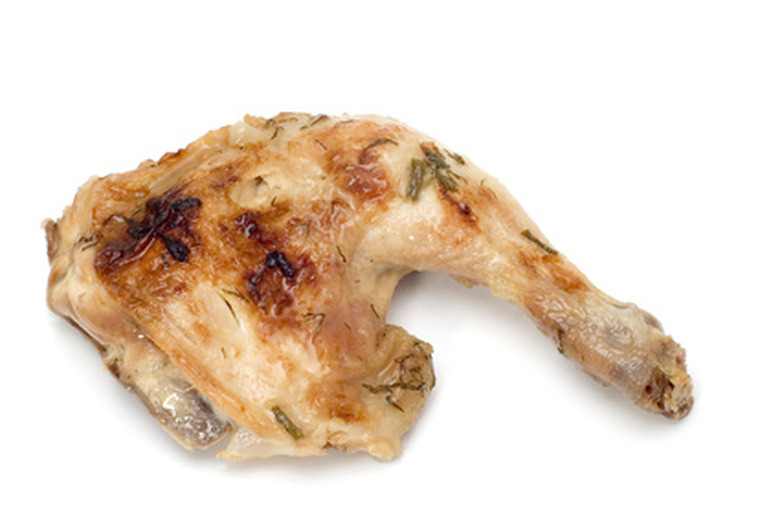How To Compost Meat & Bones
Composting allows you to take organic materials and re-use them in the soil on your property. These organic materials contain nutrients that benefit the soil. This form of recycling is much better than just throwing your organic materials into a trash can. Two organic materials you may not have thought of composting include animal meat and animal bones.
Step 1
Cook your meat. Uncooked meat contains harmful bacteria and produces a horrible odor as it decomposes. Cooking the meat prepares it for use in your compost pile.
- Composting allows you to take organic materials and re-use them in the soil on your property.
Step 2
Cut your meat into smaller pieces with a kitchen knife. It is easier to do this after you have cooked the meat.
Step 3
Use a hacksaw to cut your bones in to smaller pieces because larger bones take longer to decompose.
Step 4
Layer the meat and bones in your compost pile. Cover each layer of meat and bones with grass clippings or vegetable greens. These contain nitrogen, which is needed to help break down the materials in the compost pile.
Step 5
Water the compost pile so that it is wet but not soaked.
- Cut your meat into smaller pieces with a kitchen knife.
Step 6
Add a compost accelerator since the meat and bones take longer to decompose than the rest of the items in your compost bin.
Step 7
Cover your compost pile with a tarp. When spring comes, your compost will be ready to spread over the soil in your yard.
Compost Meat Waste
Chop the meat scraps and mix the waste, an intensive source of nitrogen for the compost, with copious quantities of a carbon source, such as sawdust (see References 1, page 66). Microorganisms require an optimal ratio of the two organic sources, with carbon at a ratio of about 30:1 to nitrogen, for best results (see References 5). Bury a small quantity of meat waste in a pocket of bedding deep within a worm bin. See References 1, page 65-66) Hide the meat and sawdust mixture deeply in an outdoor regular compost pile or bury it directly in the garden if you don't have a worm bin or the quantities could overwhelm the bin. Thoroughly covering the waste prevents smells from emanating and attracting vermin. ( There are several such products available at home centers and online. Place pavers or large stones around the base to prevent rodents from trying to get at the basket.
- Add a compost accelerator since the meat and bones take longer to decompose than the rest of the items in your compost bin.
- See References 1, page 65-66) Hide the meat and sawdust mixture deeply in an outdoor regular compost pile or bury it directly in the garden if you don't have a worm bin or the quantities could overwhelm the bin.
Things Needed
- Meat
- Knife
- Bones
- Hacksaw
- Compost bin
- Compost accelerant
- Tarp
Warning
Using meat and bones in your compost pile can attract animals as well as insects. It is a myth that you should not compost meat and bones.
Tip
Try to trim the fat off your meat before you use it in your compost pile. Purchase a compost accelerator at your local garden center.
References
- Compost Bin: How to Make a Compost Pile
- Web Life: Compost Myths
- "Worms Eat My Garbage"; Mary Appelhof; 1997
- EcoHearth: Breaking Down the Bones: How to Compost Meat and Other Animal Products; Amy Kaplan; April 2010
- Seattle.gov: Seattle Public Utilities: Green Cone System
- Washington State University Whatcom County Extension: Compost Fundamentals
